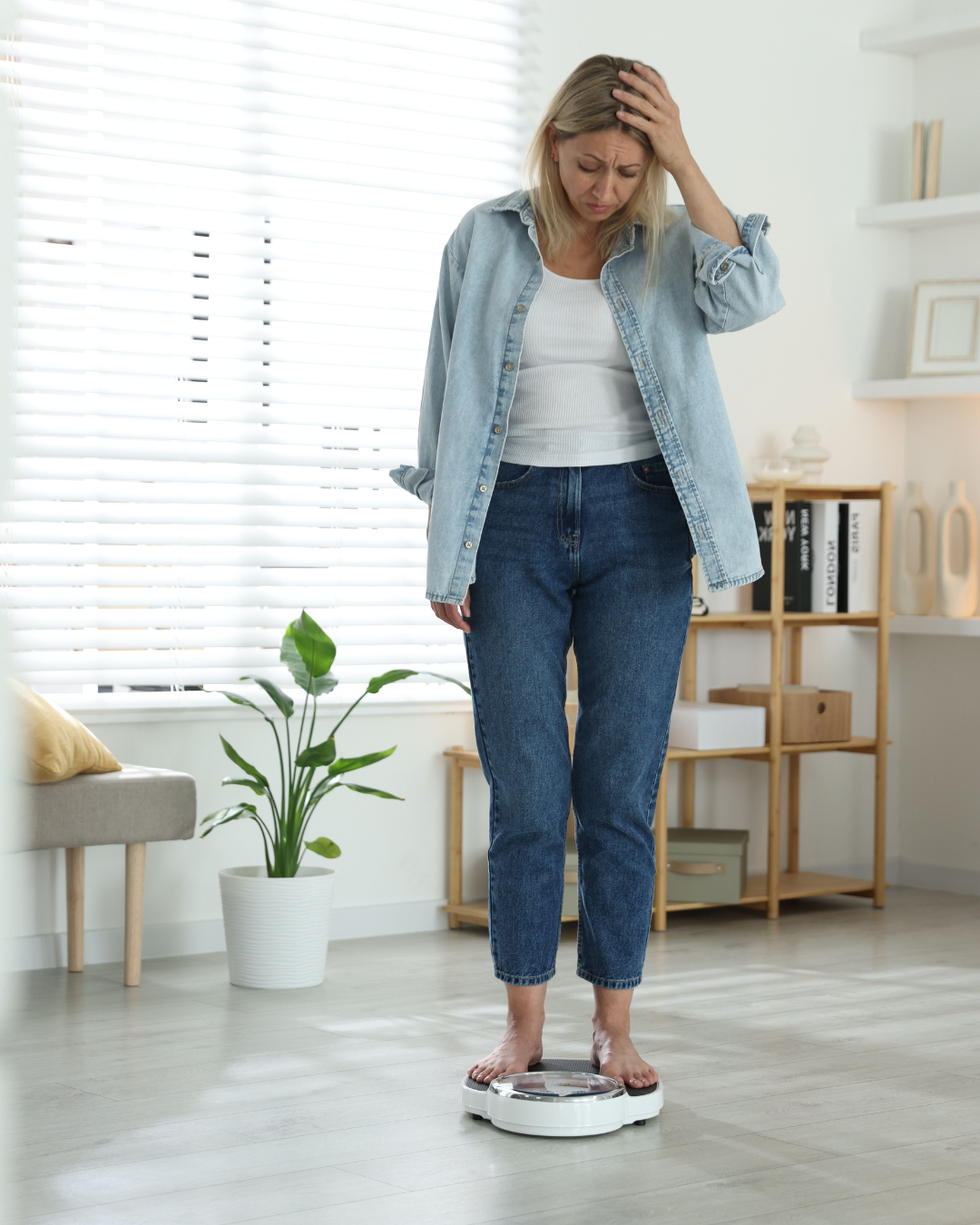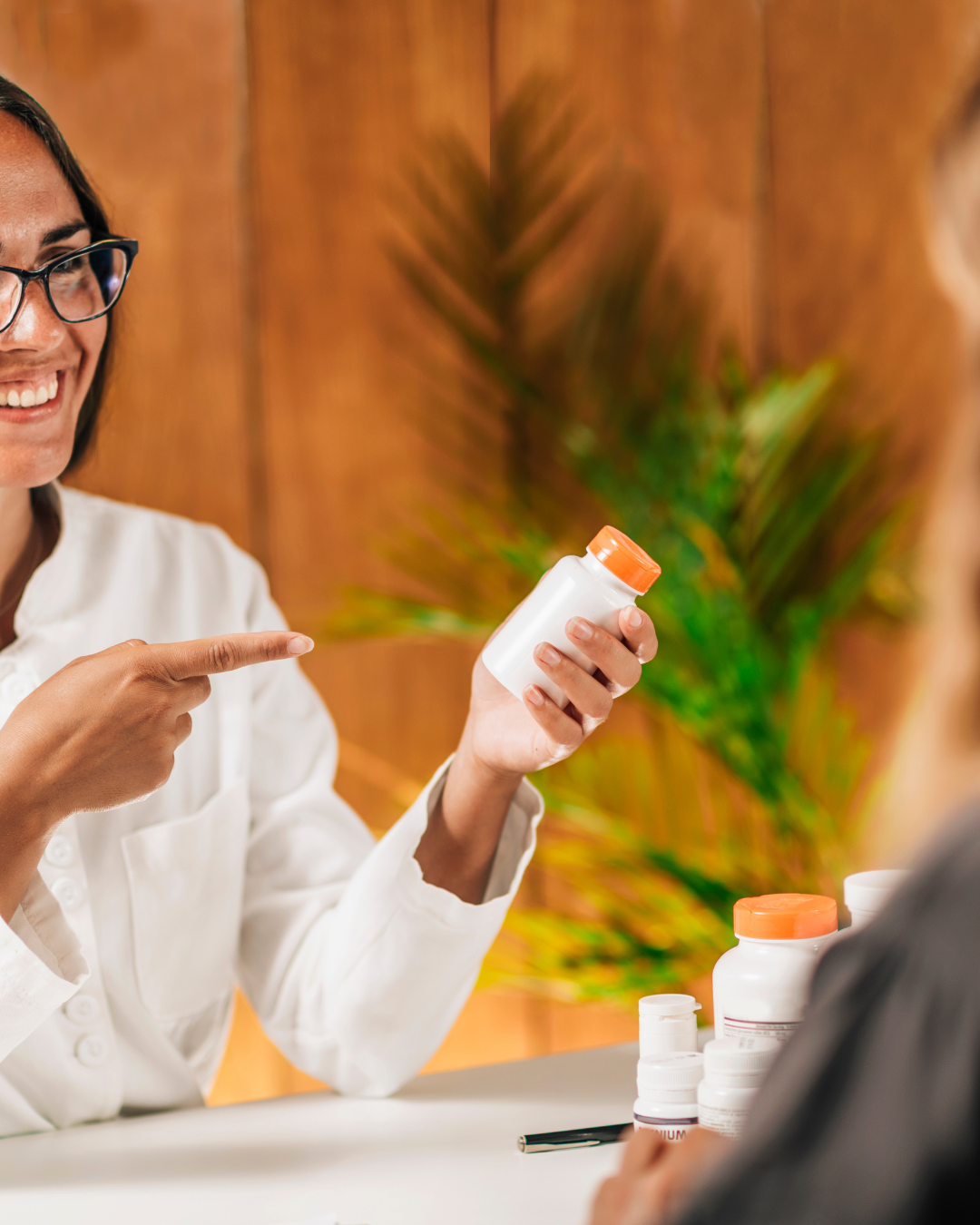Better habits, better lifestyle

Food cravings during winter feel different from hunger in other seasons. Many people reach for cookies, pasta, or bread during colder months. This behavior is common - Seasonal Affective Disorder (SAD) affects more than 10% of the population in northern climates and triggers these exact food urges. Our bodies undergo the most important changes as daylight hours decrease. The body's winter food cravings, especially for carbs, stem from biological responses to changing light patterns. Reduced sunlight leads to lower serotonin levels while melatonin production rises. These changes then affect our mood and appetite. The body's sugar cravings also intensify because it seeks quick energy boosts instinctively. Knowledge about winter cravings' meaning helps us respond better to our body's true needs. This piece explores the science behind these seasonal urges. You'll discover the emotional triggers that make them powerful and learn practical strategies to satisfy your body's real needs. These approaches help maintain health goals through the coldest months of the year. Why Your Body Changes in Winter Your body does way more than just feel cold when seasons change. Winter triggers changes in your body that affect your cravings and mood. Less sunlight affects your internal clock Your body runs on an internal biological clock—called the circadian rhythm—that controls your sleep, mood, and energy throughout the day. This internal timekeeper needs sunlight to stay properly adjusted. Winter brings fewer daylight hours, which throws this delicate system off balance. Your body's natural rhythm gets disrupted when it doesn't get enough natural light. This explains why you crave certain foods more in winter—your body tries to cope with an environment where it can't get enough light signals. People who live far from the equator tend to experience bigger seasonal shifts in their mood and appetite. On top of that, this seasonal circadian disruption leads to worse symptoms of sub-clinical dysphoria in healthy people. Drop in serotonin and dopamine levels The biggest winter change happens to the "feel-good" chemicals in your brain. Serotonin levels drop as daylight hours get shorter. This brain chemical plays a vital role in controlling your mood, appetite, and overall sense of well-being. Low serotonin creates the perfect setup for winter carb cravings. Your brain notices this shortage and pushes you toward foods that boost serotonin quickly—we crave carbohydrates and sweets. Those intense winter sugar cravings aren't just about weak willpower. Your body tries to fix its chemical imbalance. Research shows that dopamine—another chemical that regulates mood—drops during winter. These changes in both brain chemicals help explain why winter cravings mean more than just being hungry. Your body launches a complex biological response to restore its chemical balance. Melatonin rises earlier, making you sleepy Your pineal gland makes more melatonin—the sleep hormone—when winter days stay dark longer. You start producing this hormone earlier in the evening compared to summer. High melatonin levels trigger several changes: You feel more tired and sleepy, especially late afternoon Mornings become harder despite sleeping longer Your sleep quality isn't as good The sort of thing I love about melatonin and winter cravings is their connection. Animals show much higher melatonin levels in winter than summer. This seasonal melatonin change makes humans hungrier—especially for high-energy foods that might help fight fatigue. These biological changes aren't random. They're adaptations from our ancient past. Higher melatonin and lower serotonin might have helped our ancestors prepare for times when food was scarce by making them crave foods that increased fat storage. You can handle those unexplainable urges for pasta, bread, and sweets better when you know what's happening inside your body. Only when we are willing to accept these cravings' biological roots can we find better ways to stay balanced during winter's darkest days. The Science Behind Winter Cravings Our winter food cravings tell an amazing biological story. The simple urge to eat cookies or pasta during cold months reveals complex processes in our brain chemistry and hormonal systems. Winter carb cravings and serotonin connection Serotonin, a neurotransmitter, plays a key role in winter carb cravings. Your serotonin levels naturally decrease as daylight hours get shorter. This vital brain chemical controls both mood and appetite—especially your desire for carbohydrates. Your brain creates a biological chain reaction when serotonin drops. It recognizes the shortage and triggers strong cravings for foods that quickly boost serotonin production. Studies show that people with seasonal mood swings eat carb-rich foods much more often in winter compared to summer. These people also tend to eat more meals daily, with food intake reaching its peak during winter months. The effectiveness of this natural self-medication is remarkable. Eating starchy foods like bread, pasta or potatoes raises your blood sugar and releases insulin. This insulin clears most amino acids from your blood—except tryptophan. With less competition, tryptophan enters your brain more easily and converts into serotonin. This explains why those winter cravings feel almost impossible to resist. Vitamin D deficiency and mood regulation Limited sun exposure during winter creates another biological challenge—vitamin D deficiency. Research shows that 30-50% of both children and adults risk developing vitamin D deficiency or already have insufficient levels. This sunshine vitamin plays a vital role in managing serotonin and dopamine—our "happy hormones". These neurotransmitters become less active as vitamin D levels fall, which directly affects mood and food choices. Research consistently links lower vitamin D levels to depression. Vitamin D does more than regulate mood. It influences your brain's reward systems that control motivation and pleasure. Your brain becomes more sensitive to stress and sadness when vitamin D decreases. This helps explain why sugar cravings get stronger in winter—your body looks for quick glucose sources that provide comfort when vitamin D can't support normal mood regulation. Cortisol and stress-related hunger Your primary stress hormone, cortisol, shows notable changes during winter months. Research has analyzed seasonal patterns and found higher cortisol levels during short-day periods (winter) compared to long-day periods (summer). These hormonal changes directly influence how hungry you feel. Elevated cortisol levels promote fat storage and strengthen hunger signals, particularly for sweet or fatty comfort foods. This served a purpose in our evolution—increased stress hormones prepared our ancestors' bodies for potential food shortages by driving them to eat energy-dense foods. Cortisol follows a daily rhythm that winter disrupts. Studies in Antarctica revealed that cortisol's circadian rhythm showed low amplitude and phase advancement during winter. These seasonal changes in cortisol not only affect hunger but also influence insulin sensitivity and blood sugar regulation. This makes your body more likely to store calories as fat. Winter creates the perfect metabolic challenge for many people. Lower serotonin triggers carb cravings, lack of vitamin D impacts mood regulation, and higher cortisol increases stress-related hunger. These factors combine to create winter food cravings that seem impossible to resist. Emotional and Evolutionary Triggers Our winter cravings stem from a fascinating mix of emotional bonds and age-old survival instincts that have influenced human eating patterns for thousands of years. Comfort food and ancestral survival instincts Our bodies still carry ancient biological programming from times when winter meant possible starvation. Looking back at human history, we crave specific foods in winter because our ancestors needed to survive harsh seasons when food became scarce. People who ate calorie-rich foods during cold months stayed warm and survived winter's toughest days. These survival instincts remain part of who we are today. Scientists have found that cold weather naturally makes us yearn for comfort foods. Our brain seeks physical warmth and emotional comfort to deal with lower serotonin levels. Our hunter-gatherer ancestors relied heavily on protein-rich diets in winter. They preserved meat and fish through smoking, salting, and drying. Studies show that primitive humans adapted to winter food shortages strategically. They stored energy-dense foods, especially nuts, roots, and preserved meats, to survive when fresh food disappeared under snow. This adaptation explains why we naturally reach for heavier, calorie-rich foods in cold weather - they once gave us vital energy to stay warm when food was hard to find. Nostalgia and seasonal rituals Winter food cravings go beyond simple hunger. They act as powerful emotional connections to our past. The psychology of winter comfort foods shows these cravings often trigger memories that link us to our childhood, holidays, and warm family gatherings. Seasonal dishes create lasting memories through their familiar smells, tastes, and textures that stay with us into adulthood. A food psychology researcher explains, "You come to associate these foods with feelings of nurture, comfort, warmth and love." This explains why we might grab cookies because they remind us of after-school snacks served with milk on tough days. Winter food traditions differ among families but usually include: Special recipes passed through generations (like French Canadian roux stuffing or Irish blueberry bread) Ritual feasts marking seasonal transitions (such as the Swedish julbord) Cultural fusion dishes that blend different holiday traditions Comfort foods specifically prepared for gathering the extended family These seasonal rituals strengthen our emotional bonds with food. Many families have specific dishes they serve only during holidays. Some enjoy lasagna after Christmas Eve mass while others wake up to grandmother's special pancakes on winter mornings. These traditions continue to trigger winter cravings because they engage all our senses at once. Social bonding and oxytocin release Cold months can make us feel isolated. Our bodies need to produce more oxytocin - the "bonding hormone." Research proves that good social connections significantly affect our health. A large study found that strong social bonds boost survival rates by about 50%, similar to quitting smoking. Sharing meals turns on our brain's reward systems by releasing oxytocin. This hormone lifts our mood, creates attachment feelings, and helps control appetite. Scientists have discovered that certain foods boost oxytocin production. Dark chocolate contains compounds that increase feelings of pleasure and bonding. Nuts rich in amino acids like arginine also help create oxytocin. People needed community support to survive winter before modern conveniences existed. Our ancestors knew that sharing food and gathering around fires helped them both practically and mentally. We see this ancient wisdom in today's winter traditions - from movie nights with popcorn to candlelight dinners and neighborhood soup exchanges. These social winter eating habits serve multiple purposes biologically. They provide food while increasing mood-enhancing hormones that help us cope with less daylight. Most importantly, they remind us that our strongest winter cravings might not be for the food itself but for the connections these foods help us maintain. What Your Body Really Needs Instead Your body's response to winter cravings can change dramatically when you understand its true needs. These biological urges don't need to be fought - you can address why it happens by giving your body specific nutrients. Tryptophan-rich proteins and complex carbs Winter carb cravings often point to your body needing more serotonin. Your body can't produce tryptophan on its own, yet this amino acid is vital to make serotonin. You can find natural tryptophan in: Lean proteins like turkey, chicken, and fish Dairy products such as low-fat cheese and yogurt Plant-based options including beans, tofu, and other soy products The magic happens when you pair tryptophan-rich foods with complex carbohydrates. This combination triggers insulin release, which clears other amino acids from your bloodstream. More tryptophan reaches your brain as a result. Next time winter sugar cravings hit, reach for tryptophan sources with whole grains or starchy vegetables instead of simple sugars. Omega-3s for mood and brain health Omega-3 fatty acids are a vital part of curbing mood swings that lead to winter food cravings. DHA (docosahexaenoic acid) stands out among polyunsaturated fatty acids, which make up 20% of your brain's dry weight. Research shows lower depression rates in countries where people eat more fish. This happens because omega-3s influence serotonin, dopamine, and norepinephrine - chemicals that naturally drop during winter months. Most successful clinical trials use EPA (eicosapentaenoic acid) alone or with DHA. Daily doses range from 0.5 to 10 grams, with the best results coming from preparations containing at least 60% EPA. Fatty fish like salmon, mackerel, and sardines pack plenty of omega-3s. Walnuts, flaxseeds, and chia seeds are great alternatives for those who don't eat fish. Hydration and fiber to balance blood sugar Winter might not make you feel thirsty, but your body loses fluids steadily through breathing, sweating, and urination. This subtle dehydration can make your cravings worse and drain your energy. Blood sugar stability improves when you combine proper hydration with fiber, which helps reduce winter carb cravings. Soluble fiber improves insulin sensitivity, reduces blood sugar, and helps lower cholesterol levels. A low-fat diet with 30 grams of daily fiber might help prevent diabetes. Water-rich vegetables, fruits, legumes, and whole grains give you both fiber and hydration. Warm vegetable soups are a great way to get hydration and nutrients - they target the real needs behind your winter cravings. Daily Habits to Curb Winter Food Cravings Daily habits are your best defense against those persistent winter cravings. These four core routines will help you regulate the biological processes that drive those strong urges naturally. Get morning sunlight or use light therapy Natural light exposure in your first 30-60 minutes after waking resets your circadian rhythm and naturally keeps melatonin production in check. Early light makes you more alert, lifts your mood, and helps you sleep better at night. If morning sunlight is hard to get, you could try a light box that gives off 10,000 lux. Just sit 16-24 inches away for 20-30 minutes each morning. Research shows light therapy works just as well as antidepressants for seasonal mood changes. Move your body regularly Physical activity helps curb winter cravings. It releases endorphins - natural mood boosters that offset lower serotonin levels. You only need 15-20 minutes of vigorous exercise weekly to reduce your risk of heart disease, cancer and early death by a lot. Regular movement also keeps your cortisol levels steady, which might otherwise lead to stress eating. Practice mindfulness and stress relief Mindful eating helps you tell the difference between emotional and physical hunger. When stress levels rise, they boost cortisol and ghrelin—hormones that make you hungrier and crave fatty, sugary foods. Research confirms that mindfulness meditation helps reduce stress-eating and food cravings. Stick to a consistent sleep schedule Your internal clock stays stable through winter when you keep regular bedtimes and wake times—even on weekends. Sleeping in throws off your body's natural rhythm even more. Sleep experts say adults need 7.5-8 hours of quality sleep to reduce the effects of seasonal light changes. Conclusion Winter cravings are nowhere near as simple as hunger or weak willpower. Your body responds to less sunlight with complex biological changes that affect serotonin levels and increase melatonin. When you understand these natural responses, you can give your body what it needs instead of fighting biological urges. Next time winter makes you crave cookies, pasta, or bread, take a moment to think about what your body might need. You might need tryptophan-rich proteins with complex carbohydrates to boost serotonin. Your cravings could also signal your body's need for omega-3 fatty acids that support brain health and mood during darker days. People often blame themselves for winter indulgences. Science shows these urges come from adaptations that helped our ancestors survive when food was scarce. This understanding can free you from guilt and help you make better choices that address your body's needs. Simple daily habits can transform your response to winter. Exposure to morning sunlight, regular exercise, stress management, and consistent sleep work together to keep your internal rhythms stable as seasons change. These habits help balance your neurotransmitters naturally. Winter brings unique challenges to our eating patterns. Of course, when you understand what drives these seasonal cravings, you can respond better to your body's needs. This mindful approach helps you balance biological needs with health goals through the cold months. Key Takeaways Winter cravings aren't about willpower—they're biological responses to seasonal changes that you can address with targeted strategies. Winter reduces sunlight exposure, dropping serotonin and vitamin D levels while increasing melatonin, creating powerful carb and sugar cravings • Your body craves tryptophan-rich proteins with complex carbs, omega-3s, and proper hydration—not simple sugars and refined foods • Morning sunlight exposure, regular movement, mindfulness practices, and consistent sleep schedules naturally regulate winter hunger hormones • Evolutionary survival instincts drive winter comfort food cravings, making them normal biological responses rather than personal failures Understanding these seasonal changes empowers you to work with your biology instead of against it, providing what your body truly needs while maintaining your health goals through winter's darkest months.

The fasting mimicking diet has gained momentum for its potential to improve metabolic health, support healthy aging, and even influence cellular regeneration. While human studies are still relatively small and short-term, the data so far is compelling. Here’s what the research says—and what it doesn’t—about this periodic 5-day, low-calorie, plant-forward diet. Metabolic & Cardiovascular Benefits One of the most well-studied areas of the fasting mimicking diet (FMD) is metabolic health. In a randomized trial of 100 healthy adults, three monthly cycles of a 5-day FMD led to: Decreased body weight Lower trunk and total body fat Reduced blood pressure Reduced IGF-1 (a hormone associated with aging and cancer risk) Participants at higher baseline risk saw even stronger improvements. A follow-up analysis of 71 participants found additional benefits: Lower BMI Reduced fasting glucose Decreased triglycerides Lower total and LDL cholesterol Reduced C-reactive protein (a marker of inflammation) Higher blood levels of trimethylamine N-oxide (TMAO) have been linked to increased cardiometabolic disease risk. A study in healthy volunteers found that the fasting mimicking diet cut TMAO levels by about 50%, reduced IGF-1, and improved insulin sensitivity. Bottom line: Even in generally healthy adults, periodic FMD cycles appear to improve several markers of metabolic and cardiovascular health. Effects in Type 2 Diabetes Some of the most promising findings come from people with type 2 diabetes. A recent 12-month randomized controlled trial in primary care found that monthly 5-day FMD cycles: Reduced the need for glucose-lowering medications Improved HbA1c Enhanced glycemic control in over half of the participants—compared to only 8% in the control group This is early but encouraging: the fasting mimicking diet may support better glycemic control while reducing medication burden—when used under medical supervision. Autophagy & Cellular Health Another exciting area of FMD research involves cellular cleanup and repair. A pilot randomized trial found that FMD increased autophagic flux—your body’s ability to recycle damaged cellular components. Participants also showed: Lower fasting glucose Higher ketone levels Reduced HOMA-IR (a calculated score used to estimate insulin resistance) Both low- and high-protein versions of FMD triggered autophagy at a molecular level, though the low-protein version led to higher ketone production. This suggests FMD may help activate longevity-linked pathways involved in cellular renewal. Longevity & Cognitive Effects Long-term animal studies point toward broader systemic benefits. In mice, repeated FMD cycles: Extended lifespan Reduced cancer incidence Promoted hippocampal neurogenesis (hello, brain health) Improved cognitive performance Enhanced stem cell regeneration across multiple organ systems A 2024 study in aging mice showed that FMD also improved gut health, boosted beneficial species like Lactobacillus johnsonii, reduced anxiety behaviors, and supported cognitive function. While animal data doesn’t automatically translate to humans, it provides a strong scientific rationale for ongoing human trials. Body Composition & Metabolic Preservation Compared to traditional calorie restriction, FMD has some advantages: Better preservation of lean mass Less reduction in basal metabolic rate Similar weight loss results without slowing metabolism A high-protein version of FMD has also been explored, showing selective reductions in visceral fat, improvements in heart rate variability, and increased microbiome diversity. Takeaway The fasting mimicking diet is one of the most intriguing and well-researched nutrition interventions in the longevity space. Early data support benefits in metabolic health, cardiovascular markers, type 2 diabetes, cellular repair, and even cognitive performance. But like all emerging therapies, it requires more rigorous long-term study. If you’re considering FMD, especially if you have chronic medical conditions or take prescription medications, it’s essential to do so under the guidance of a clinician trained in metabolic and nutritional interventions. If you’re considering trying the fasting mimicking diet yourself, you can order the ProLon FMD kit here: ORDER: The Fasting-Mimicking Diet References: Wei M, Brandhorst S, Shelehchi M, Mirzaei H, Cheng CW, Budniak J, Groshen S, Mack WJ, Guen E, Di Biase S, Cohen P, Morgan TE, Dorff T, Hong K, Michalsen A, Laviano A, Longo VD. Fasting-mimicking diet and markers/risk factors for aging, diabetes, cancer, and cardiovascular disease. Sci Transl Med. 2017 Feb 15;9(377):eaai8700. doi: 10.1126/scitranslmed.aai8700. PMID: 28202779; PMCID: PMC6816332. Videja M, Sevostjanovs E, Upmale-Engela S, Liepinsh E, Konrade I, Dambrova M. Fasting-Mimicking Diet Reduces Trimethylamine N-Oxide Levels and Improves Serum Biochemical Parameters in Healthy Volunteers. Nutrients. 2022 Mar 5;14(5):1093. doi: 10.3390/nu14051093. PMID: 35268068; PMCID: PMC8912301. Van den Burg EL, Schoonakker MP, van Peet PG, van den Akker-van Marle EM, Lamb HJ, Longo VD, Numans ME, Pijl H. Integration of a fasting-mimicking diet programme in primary care for type 2 diabetes reduces the need for medication and improves glycaemic control: a 12-month randomised controlled trial. Diabetologia. 2024 Jul;67(7):1245-1259. doi: 10.1007/s00125-024-06137-0. Epub 2024 Mar 28. PMID: 38546821; PMCID: PMC11153305. Espinoza SE, Park S, Connolly G, Qi W, Zhang N, Semwal M, Li Y, Lauzon M, Salmon AB, Hsu W, Wei M, Musi N. Effect of fasting-mimicking diet on markers of autophagy and metabolic health in human subjects. Geroscience. 2025 Dec 11. doi: 10.1007/s11357-025-02035-4. Epub ahead of print. PMID: 41372565. Burns L, Cooper S, Sarmad S, Funke G, Di Mauro A, Gaitanos GC, Tsintzas K. Effects of fasting-mimicking diets with low and high protein content on cardiometabolic health and autophagy: A randomized, parallel group study. Clin Nutr. 2025 Sep;52:299-312. doi: 10.1016/j.clnu.2025.08.004. Epub 2025 Aug 6. PMID: 40816210. Brandhorst S, Choi IY, Wei M, Cheng CW, Sedrakyan S, Navarrete G, Dubeau L, Yap LP, Park R, Vinciguerra M, Di Biase S, Mirzaei H, Mirisola MG, Childress P, Ji L, Groshen S, Penna F, Odetti P, Perin L, Conti PS, Ikeno Y, Kennedy BK, Cohen P, Morgan TE, Dorff TB, Longo VD. A Periodic Diet that Mimics Fasting Promotes Multi-System Regeneration, Enhanced Cognitive Performance, and Healthspan. Cell Metab. 2015 Jul 7;22(1):86-99. doi: 10.1016/j.cmet.2015.05.012. Epub 2015 Jun 18. PMID: 26094889; PMCID: PMC4509734. Wang Q, Xu J, Luo M, Jiang Y, Gu Y, Wang Q, He J, Sun Y, Lin Y, Feng L, Chen S, Hou T. Fasting mimicking diet extends lifespan and improves intestinal and cognitive health. Food Funct. 2024 Apr 22;15(8):4503-4514. doi: 10.1039/d4fo00483c. PMID: 38567489. Sadeghian M, Hosseini SA, Zare Javid A, Ahmadi Angali K, Mashkournia A. Effect of Fasting-Mimicking Diet or Continuous Energy Restriction on Weight Loss, Body Composition, and Appetite-Regulating Hormones Among Metabolically Healthy Women with Obesity: a Randomized Controlled, Parallel Trial. Obes Surg. 2021 May;31(5):2030-2039. doi: 10.1007/s11695-020-05202-y. Epub 2021 Jan 9. PMID: 33420673. Burns L, Cooper S, Sarmad S, Funke G, Di Mauro A, Gaitanos GC, Tsintzas K. Effects of fasting-mimicking diets with low and high protein content on cardiometabolic health and autophagy: A randomized, parallel group study. Clin Nutr. 2025 Sep;52:299-312. doi: 10.1016/j.clnu.2025.08.004. Epub 2025 Aug 6. PMID: 40816210.










